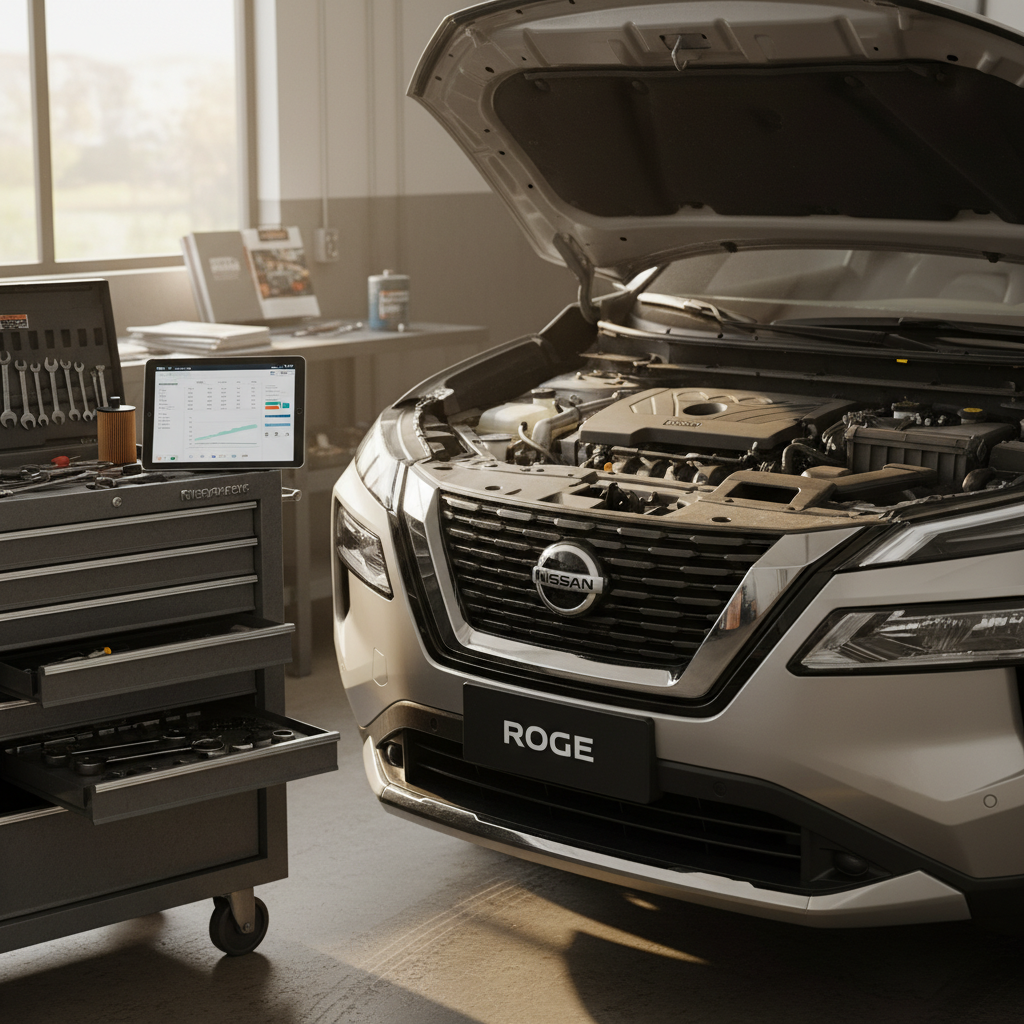If you’re shopping for a Toyota bZ4X (now simply bZ) or a Prius Prime, you’ve probably heard the horror stories: a Toyota electric car battery replacement cost that runs into the five figures. Some of that is true, most of it is badly mangled. Let’s straighten it out with real 2025 numbers and some owner‑friendly context.
Quick Reality Check
Toyota EV Battery Cost at a Glance
Toyota Electric & Hybrid Battery Costs in 2025 (Typical Ranges)
Those headline numbers are eye‑watering, but they’re what you’d pay in the weird edge‑case where your pack fails outside the warranty and you insist on a brand‑new, OEM unit installed at a dealer. In daily life, you’re much more likely to see a modest bill for a 12‑volt battery, or nothing at all because Toyota picks up the tab under warranty.
How Much Do Toyota EV Batteries Cost to Replace?
Let’s start with the big one: the high‑voltage traction battery in Toyota’s fully electric crossover, the bZ4X (badged simply bZ starting with the 2026 model year). This is the expensive, floor‑mounted pack that gives you 200‑plus miles of range, not the little 12‑volt lead‑acid battery that powers accessories.
Typical Toyota bZ4X / bZ Battery Replacement Scenarios
Realistic 2025 ballparks for U.S. owners (parts only unless noted)
1. Full Pack Replacement
What it is: Entire 71–75 kWh pack swapped for a new one.
- Pack price often quoted around $19,000–$20,000 before labor.
- Labor at a dealer can add $2,000–$3,000+.
- Real‑world all‑in bills can push into the low‑to‑mid $20,000s if you’re fully out of warranty.
2. Module-Level Repair
What it is: Only the failing modules inside the pack are replaced.
- bZ4X’s pack is made up of multiple modules; replacing a full set is often estimated at $8,000–$10,000 plus labor.
- When only a few modules are failing, the bill can be noticeably lower.
- Objective: restore performance without paying for an entire pack.
3. Warranty Replacement
What it is: Toyota covers pack or module replacement under its EV battery warranty.
- Out‑of‑pocket cost: $0 for the high‑voltage pack if failure is within terms.
- You may still pay for diagnostics or incidental wear items.
- This is the most common outcome for early‑life battery problems.
In other words, yes, a brand‑new Toyota EV pack is a house‑sized bill on paper. In practice, failures are rare, and when they do happen early, Toyota usually pays. When they happen late, you have options besides writing a $20,000 check at the service counter.
Don’t Confuse the 12‑Volt with the Traction Battery

Toyota Hybrid vs Fully Electric Battery Costs
Toyota’s business case, if not its marketing, still leans heavily on hybrids. From Prius Prime to the Camry Hybrid and RAV4 Hybrid, those cars use smaller packs that are cheaper to replace and have an almost fanatical reputation for longevity.
Typical 2025 Toyota Battery Replacement Costs by Powertrain
These are traction‑battery ballparks for out‑of‑warranty vehicles in the U.S., not 12‑volt accessory batteries.
| Vehicle type | Example models | Typical traction battery replacement cost (parts + labor) | Notes |
|---|---|---|---|
| Full battery electric (BEV) | bZ4X / bZ | $15,000–$22,000 | Full pack replacement at dealer rates; module‑only work can be lower. |
| Plug‑in hybrid (PHEV) | Prius Prime, RAV4 Prime | $10,000–$14,000 | Larger pack than a normal hybrid; full high‑voltage replacements can hit the low teens. |
| Conventional hybrid (HEV) | Prius, Camry Hybrid, Corolla Hybrid, RAV4 Hybrid | $2,200–$4,500 | New OEM packs; independent or refurbished options can land closer to $1,500–$3,000. |
Actual pricing varies by dealer, region, and availability, but hybrids are consistently far cheaper to re‑battery than full EVs.
Numbers like that Prius Prime quote you sometimes see, over $13,000 for a full high‑voltage battery replacement, are real, but they’re also worst‑case, dealer‑only, no‑warranty scenarios. Everyday hybrid battery jobs are far more civilized on your bank account.
Why Hybrids Age So Gracefully
What Toyota’s Battery Warranty Really Covers
The big lever in this whole conversation isn’t parts pricing; it’s warranty coverage. Toyota has been steadily ratcheting up its battery guarantees, especially for hybrids, both to satisfy regulators and to calm nervous buyers.
- Many Toyota hybrids built from 2020 onward carry traction‑battery coverage of roughly 8–10 years and up to about 150,000 miles in U.S. states that follow stricter emissions rules.
- Earlier hybrids typically carried around 8 years/100,000 miles of coverage on the high‑voltage battery.
- For the bZ4X/bZ and future Toyota EVs, Toyota promotes long‑life packs with aggressive degradation targets; U.S. warranty terms vary by model year and state, but you should assume at least 8 years/100,000 miles of traction‑battery coverage as a baseline, sometimes more.
- Toyota’s language usually covers capacity loss beyond a set threshold (for example, dropping below a certain percentage of original capacity) and outright failures that trigger warning lights or limp‑home modes.
Action Item: Read the Fine Print
Why Toyota Batteries Usually Last Longer Than You Think
The mental image we all carry, EV batteries falling off a cliff like an aging iPhone, isn’t borne out in the data, especially with Toyota. The company is conservative by nature, sometimes maddeningly so, and it tends to over‑engineer batteries for a long, boring life.
Why Toyota Traction Batteries Tend to Be Boringly Reliable
Boring is good when it’s the only thing between you and a five‑figure repair.
1. Gentle Operating Windows
Toyota rarely lets its packs charge to 100% or drain anywhere near 0% in normal use. That narrow operating band dramatically slows chemical aging.
2. Conservative Power Output
Unlike some performance‑oriented EVs, Toyota doesn’t wring every last kilowatt from its cells. Lower stress, lower heat, longer life.
3. Robust Thermal Management
Good airflow and thermal control keep battery temperatures in the Goldilocks zone, particularly in hybrids where the pack is small but heavily cycled.
4. Huge Real‑World Fleet Data
Decades of Prius taxis and high‑mileage hybrids gave Toyota a mountain of data on what kills batteries, and how to avoid it in newer designs.
Degradation vs Failure
7 Factors That Move Your Battery Bill Up or Down
If the high‑voltage battery does become an issue, your cost isn’t written in stone. Several levers can swing a Toyota electric car battery replacement cost dramatically in either direction.
Key Drivers of Toyota EV & Hybrid Battery Replacement Cost
1. Model and Pack Size
A compact Prius hybrid pack is far cheaper to replace than the large lithium‑ion pack in a bZ4X. More kWh almost always equals more dollars.
2. Warranty Status
If you’re inside Toyota’s battery warranty window, often 8–10 years, your out‑of‑pocket cost may be near zero. A few months out of warranty can be the difference between a small deductible and a five‑figure bill.
3. Dealer vs Independent Shop
Dealer service is convenient and uses genuine parts, but you’ll pay for that. An independent hybrid/EV specialist can often source remanufactured packs or modules at a substantial discount.
4. New vs Remanufactured or Used Pack
New OEM packs command the highest price. Remanufactured packs, with replaced weak cells and fresh balancing, can chop thousands off the total, especially for hybrids.
5. Labor Rates & Shop Policies
Battery swaps are specialized work. Big‑city dealer rates and required ancillary parts (coolant, wiring, fasteners) can easily add four figures in labor and shop fees.
6. Diagnostic Depth
A proper diagnostic may reveal only one or two failing modules. Replacing just those, plus a full rebalance, is far cheaper than a full pack replacement.
7. Insurance Involvement
If the pack is damaged in a collision or flood, your insurer may cover replacement. That turns what would have been a financial asteroid into a deductible and maybe a premium increase.
Critical Caution for Salvage or Flood Cars
How to Avoid Paying Full Price for a Toyota EV Battery
You can’t change chemistry, but you can stack the odds in your favor so that you never see the headline numbers on that bZ4X parts diagram.
Smart Ownership Habits
- Charge sanely: Daily charging to 70–80% and avoiding deep discharges helps preserve capacity over the long haul, especially for full EVs.
- Respect the heat: Whenever possible, park in the shade or a garage. High ambient temperatures are cruel to battery longevity.
- Watch the dash lights: If you get hybrid or EV system warnings, address them promptly before minor imbalances snowball into full‑pack issues.
Smart Financial Habits
- Know your warranty dates: Put the battery warranty expiration in your calendar with a reminder six months ahead.
- Get multiple quotes: If you ever face a battery bill, compare dealer, independent specialist, and remanufactured options.
- Consider a used EV with verified battery health: Platforms like Recharged provide a Recharged Score report so you’re not guessing about the pack.
Spread the Risk, Not the Panic
Battery Health and Buying a Used Toyota EV
Where battery cost really becomes a chess game is in the used market. You’re not just buying a Toyota; you’re buying someone else’s charging habits, climate, and maintenance choices.

How to Shop Smarter for a Used Toyota EV or Hybrid
Minimize your chance of inheriting a future five‑figure repair.
1. Demand Battery Health Data
Ask for documentation of battery health checks, not just generic “multi‑point inspections.” On platforms like Recharged, every vehicle includes a Recharged Score with verified battery diagnostics.
2. Check Age vs Mileage vs Climate
A five‑year‑old Prius from mild coastal weather with 80,000 miles is a different animal from one that lived its life baking in Phoenix with 180,000.
3. Use EV‑Savvy Inspectors
Have a hybrid/EV specialist scan the car for codes, inspect the cooling system, and look for signs of water intrusion around the pack.
4. Verify Warranty Transfer
Confirm that Toyota’s battery warranty is still in effect and transferable. Get the in‑service date, not just the model year, before you sign.
5. Compare Total Cost of Ownership
Sometimes a slightly more expensive used car with documented battery health and remaining warranty is cheaper in the long run than a bargain with unknowns.
6. Consider Certified or Specialist Sellers
Buying from EV‑focused retailers, such as Recharged, which specializes in used electric vehicles and can guide you through financing, trade‑in, and battery health, reduces the guesswork.
FAQ: Toyota Electric Car Battery Replacement Cost
Frequently Asked Questions About Toyota EV Battery Costs
Bottom Line: Should Battery Cost Scare You Off a Toyota EV?
Toyota electric car battery replacement cost is a little like open‑heart surgery pricing, fascinating in theory, terrifying in the abstract, and something most people will never actually pay out of pocket. Yes, a full bZ4X/bZ pack replacement out of warranty can touch the cost of a decent used Corolla. But the odds strongly favor a quieter outcome: many years of service, mild capacity loss, and, if anything goes wrong early, a warranty repair you never see a bill for.
If you’re shopping used, the trick isn’t to avoid Toyota EVs and hybrids; it’s to avoid flying blind. Choose sellers who can show you real battery data, like the Recharged Score on Recharged, ask pointed questions about warranty and climate history, and treat a traction battery inspection as mandatory on any borderline car. Do that, and battery anxiety becomes just another line item in a grown‑up ownership plan, not a reason to skip a car that otherwise fits your life perfectly.



